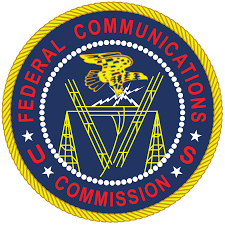[tribulant_slideshow gallery_id=”203″]
On Nov. 21, the Federal Communications Commission (FCC) Chairman Ajit Pai revealed plans to repeal net neutrality in the United States, causing much outrage and political backlash. The FCC is expected to vote on the repeal Dec. 14, with an anticipated 3-2 vote in favor of the repeal. However, while this story has dominated headlines and the internet for days, what is net neutrality? How does net neutrality affect the average consumer or even student at Saint Leo University? Perhaps most importantly, what can students do to fight the repeal?
First, for consumers to know what they’re losing, they have to know what net neutrality is. Net neutrality is the principle that all internet services should be equal, giving consumers a level playing field. Internet Service Providers, or ISPs, cannot throttle somebody’s internet or split a package, they must offer a level, equal and neutral internet package. For example, without net neutrality, Bright House could throttle the connection speeds to Netflix, as Netflix competes with their cable services. Or, Google Fiber could throttle the speeds to Yahoo or Bing, their biggest competitors.
This situation may seem familiar to some keen-eyed viewers of the news. In 2015, under the Obama administration and his elected FCC chairman, there was a similar battle for net neutrality. This battle ended with the FCC classifying broadband internet as a utility, such as electricity or water. This effectively enacted “net neutrality” which prohibits ISPs from giving certain customers fast lanes or throttling other customers. However, two years later in 2017, Trump’s elected FCC chairman announces his plans to end net neutrality for the country. So why do this, and is there an honest reason for repealing net neutrality?
Net neutrality as a concept is very one-sided in the nation. With a very loud response online and in the media, it is unclear why the government would ever repeal something so many voters in the nation want. However, this decision is not made with a nationwide vote, is it up to the five members of the FCC to vote on the bill. So, even if 99 percent of the population decided they wanted net neutrality to stay, the FCC members could still repeal it.
So, who comprises the FCC that holds power to affect the nation so significantly? The commission is made up of five members, three Republicans and two Democrats. Ajit Pai, the chairman, is one of the right-leaning members. Brendan Carr and Michael O’Rielly are the other conservative members, and Mignon Clyburn and Jessica Rosenworcel serve as the commission’s liberals. It is expected that the repeal vote will pass 3-2, with the conservatives voting in favor of net neutrality and the Democrats voting to keep it.
Why would the commission vote to repeal something that so many citizens fought for and still believe is necessary for the nation? The main argument against net neutrality is that it affects the “free market.” The free market is a term that conservatives advocate for to have a free and non-regulated economy and market without government interference. Conservatives see net neutrality as an attack on the free market and thus leads to their desire to repeal it.
Another argument being made in favor of the repeal of net neutrality is that it is yet another victim in the Trump Administration’s attack on Obama’s former Administration. President Trump has pledged much of his efforts in the early portion of his term to repeal Obama regulations, even pledging to repeal two orders for every one that he passes.
The response to the impending repeal has been largely negative, both from Democrats and also from some of the more centrist-leaning Republicans. While conservatives agree that it attacks the free market, some still think net neutrality is necessary, as repealing it could be one of the most anti-consumer moves in recent history. However, some of the most devoted Trump supporters both in public and in the political realm have agreed with the FCC’s move.
The most prominent argument in favor of the repeal of net neutrality isn’t that the ISPs won’t take advantage of consumers or the lenient laws, but that it won’t be that bad when they do. Proponents of the repeal argue that when the ISPs take advantage of consumers and raise prices, throttle and offer unfair packages, the consumer will be able to vote with their money. This is the concept that if a service is poor, the consumer will instead go to a competitor, thus showing the industry what consumers want. For example, if Comcast is negative with their packages and throttling and Bright House is not, consumers will flock to Bright House and Comcast will “learn.” However, this belief is incredibly flawed and naïve in the world today, much less in a post-net neutrality landscape.
The argument against this belief is that most consumers in the country have no choice on what ISP they have. Comcast is known for being bloodthirsty and anti-consumer even with net neutrality; however, Comcast is the only internet provider in many areas. For example, in a rural city, their only two options would be to have Comcast or no internet at all. In this case, how are consumers expected to switch providers based on their needs?
“But new competitors will arise to fight the big ones!” is another argument; however, this also seems to be false. A more local, smaller ISP is almost always doomed to fail due to the internet industries lobbying in Congress. Congress has passed many bills making it very difficult for new ISPs to start up, and even if they do start up, they would still have to rent the infrastructure from a bigger company. How could somebody who rents an apartment switch ISPs when internet is included in their rent?
Another argument is that even in a free market, the “better” ISP would still end up with prices higher than what consumers started with pre-repeal.
How does a net neutrality-free world affect a college student, though? Besides the obvious throttling of standard entertainment platforms such as Netflix, Hulu, YouTube and gaming, imagine if Saint Leo’s internet service provider that handles students’ Wi-Fi and wired internet decided to open an Amazon competitor? Many students get textbooks and school supplies from Amazon, but what if the school’s ISP decided to throttle or block access to Amazon and only allowed access to their competitor with higher prices? Or, what if the ISP decided to raise prices for the school, would tuition have to increase to compensate?
Net neutrality is a nationwide issue and one that cannot be solved by simply going out to the ballot boxes. Net neutrality has to be saved by calling one’s representatives, protesting and simply being vocal. The country cannot keep continuing to have this fight every two years; it needs to be set in stone and left alone for future administrations.





